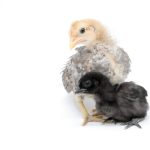Providing adequate shelter is a crucial aspect of pet care. This involves ensuring pets have a safe and comfortable space for rest and relaxation. Indoor pets typically require a cozy bed or crate for security, while outdoor pets need sturdy, weatherproof shelters to protect them from the elements.
When providing shelter, it’s essential to consider the specific needs of each pet. For outdoor dogs, shelters should be spacious enough for comfortable movement and properly insulated to maintain appropriate temperatures year-round. Small animals like rabbits or guinea pigs require secure enclosures that offer protection from predators and ample space for movement.
Creating a safe environment extends beyond physical shelter. Pet-proofing the home to prevent accidents and providing fenced areas for outdoor play are important considerations. By addressing these shelter and safety needs, pet owners can ensure their animals feel secure and comfortable in their living environment.
Table of Contents
Key Takeaways
- Adequate shelter is essential for the well-being of animals, providing protection from the elements and a safe, comfortable space.
- Proper nutrition is crucial for maintaining the health and vitality of animals, ensuring they receive a balanced diet tailored to their specific needs.
- Clean bedding is important for preventing the spread of disease and maintaining a hygienic living environment for animals.
- Ample exercise is necessary for animals to stay physically and mentally healthy, allowing them to expend energy and engage in natural behaviors.
- Providing entertainment for animals, such as toys and enrichment activities, can help prevent boredom and improve their overall welfare.
- Regular monitoring for signs of stress or illness is important for early detection and treatment, ensuring the well-being of animals.
- Implementing safety measures, such as secure enclosures and proper handling techniques, is crucial for preventing accidents and ensuring the safety of animals and caretakers.
Ensuring Proper Nutrition
Seeking Professional Guidance
When it comes to feeding your pet, it’s important to follow the recommendations of your veterinarian or a qualified animal nutritionist. They can help you determine the best type of food for your pet and the appropriate portion sizes to ensure they maintain a healthy weight. In addition to providing a balanced diet, it’s also important to make sure your pet has access to fresh water at all times.
Special Dietary Needs
In some cases, pets may have specific dietary needs or restrictions due to health conditions or allergies. It’s important to be aware of these needs and make adjustments to their diet as necessary.
The Benefits of Proper Nutrition
By ensuring that your pet receives proper nutrition, you can help them maintain a healthy weight, strong immune system, and overall good health.
Maintaining Clean Bedding

Clean bedding is essential for the comfort and well-being of your pet. Whether they sleep in a bed, crate, or enclosure, it’s important to regularly clean and replace their bedding to prevent the buildup of bacteria, parasites, and odors. For indoor pets, this may mean washing their bedding on a regular basis and vacuuming any hair or debris that accumulates in their sleeping area.
For outdoor pets, it may mean regularly replacing straw or hay in their shelter and cleaning out any waste or debris that accumulates. In addition to regular cleaning, it’s also important to provide your pet with a comfortable and supportive sleeping surface. This may mean providing them with a soft bed or cushion that helps relieve pressure on their joints and muscles.
By maintaining clean bedding for your pet, you can help prevent skin irritations, respiratory issues, and other health problems associated with poor hygiene.
Allowing for Ample Exercise
Exercise is essential for the physical and mental well-being of your pet. Just like humans, pets need regular physical activity to maintain a healthy weight, build muscle strength, and release excess energy. Depending on the species and breed of your pet, their exercise needs may vary, so it’s important to provide them with opportunities for both mental stimulation and physical activity.
For dogs, this may mean taking them for daily walks, playing fetch in the yard, or engaging in interactive games that challenge their mind and body. For cats, this may mean providing them with toys and climbing structures that encourage them to jump, pounce, and explore their environment. Small animals like rabbits and guinea pigs may benefit from access to a secure outdoor enclosure where they can run and play.
In addition to regular exercise, it’s important to provide your pet with opportunities for mental stimulation. This may mean providing them with puzzle toys, training exercises, or interactive playtime that challenges their cognitive abilities. By allowing for ample exercise and mental stimulation, you can help prevent obesity, boredom, and behavioral issues in your pet.
Providing Entertainment
Pets thrive on mental stimulation and social interaction, so it’s important to provide them with plenty of entertainment to keep them happy and engaged. This may mean providing them with toys, puzzles, and interactive games that challenge their minds and keep them active. For dogs, this may mean providing them with chew toys, puzzle feeders, and interactive toys that encourage them to problem solve and stay engaged.
For cats, this may mean providing them with toys that mimic hunting behaviors, such as feather wands or laser pointers. Small animals like rabbits and guinea pigs may benefit from toys that encourage them to explore and forage for food. In addition to toys, it’s also important to provide your pet with social interaction and companionship.
This may mean spending quality time with them each day, engaging in playtime, or providing them with opportunities to interact with other pets or animals. By providing entertainment for your pet, you can help prevent boredom, anxiety, and destructive behaviors.
Monitoring for Signs of Stress or Illness

Recognizing Signs of Stress
It’s essential to be aware of any changes in your pet’s behavior, appetite, energy levels, and physical appearance to address any issues promptly. Common signs of stress in pets may include excessive barking or meowing, destructive behaviors, changes in appetite or sleep patterns, hiding or withdrawal, and aggression towards people or other animals.
Identifying Signs of Illness
Signs of illness may include vomiting or diarrhea, changes in urination or defecation habits, coughing or sneezing, lethargy, and changes in weight or appetite. If you notice any concerning signs in your pet, it’s crucial to seek veterinary care as soon as possible. Early intervention can help prevent minor issues from developing into more serious health problems.
The Importance of Early Intervention
By monitoring your pet for signs of stress or illness, you can ensure that they receive the care they need to stay healthy and happy. Early detection and treatment can make a significant difference in your pet’s quality of life, and it’s always better to be safe than sorry.
Implementing Safety Measures
Finally, it’s important to implement safety measures to protect your pet from potential hazards in their environment. This may include pet-proofing your home to prevent access to toxic substances or dangerous objects, securing fences and enclosures to prevent escapes or encounters with wildlife, and using proper restraints when traveling with your pet. In addition to physical safety measures, it’s also important to consider the emotional well-being of your pet.
This may mean providing them with a safe space where they can retreat if they feel anxious or overwhelmed, using positive reinforcement training techniques to build their confidence and trust, and being mindful of their individual fears or triggers. By implementing safety measures in your pet’s environment, you can help prevent accidents, injuries, and emotional distress. This can help your pet feel secure and comfortable in their surroundings, allowing them to thrive and enjoy a high quality of life.
In conclusion, caring for a pet requires attention to their physical and emotional needs. By providing adequate shelter, proper nutrition, clean bedding, ample exercise, entertainment, monitoring for signs of stress or illness, and implementing safety measures, you can ensure that your pet lives a happy and healthy life. It’s important to consider the specific needs of your pet based on their species, breed, age, and individual personality in order to provide them with the best care possible.
With proper care and attention, you can build a strong bond with your pet and enjoy many years of companionship together.
If you’re looking for tips on how to keep your chickens happy in winter, you might also be interested in learning about the Producers Pride Sentinel Chicken Coop. This coop is designed to provide a comfortable and secure environment for your chickens, which is especially important during the colder months. Check out this article to learn more about this coop and how it can benefit your flock.
FAQs
What are some tips for keeping chickens happy in winter?
Some tips for keeping chickens happy in winter include providing a warm and dry coop, ensuring access to fresh water, offering extra food for energy, and providing entertainment such as hanging treats or toys.
How can I keep my chicken coop warm in winter?
You can keep your chicken coop warm in winter by insulating the walls and roof, using a heat lamp or heated waterer, and sealing any drafts. It’s important to ensure proper ventilation while keeping the coop warm.
What should I feed my chickens in winter?
In winter, you should feed your chickens a balanced diet that includes a mix of grains, seeds, and protein. You can also offer extra treats such as mealworms or scratch to help keep them warm and provide entertainment.
How can I prevent my chickens’ water from freezing in winter?
To prevent your chickens’ water from freezing in winter, you can use a heated waterer, place a heated base under the waterer, or manually change the water multiple times a day to ensure it doesn’t freeze.
Are there any special considerations for chicken breeds in winter?
Some chicken breeds are more cold-hardy than others, so it’s important to consider the breed when preparing for winter. Breeds such as Orpingtons, Wyandottes, and Australorps are known for their cold tolerance.
Meet Walter, the feathered-friend fanatic of Florida! Nestled in the sunshine state, Walter struts through life with his feathered companions, clucking his way to happiness. With a coop that’s fancier than a five-star hotel, he’s the Don Juan of the chicken world. When he’s not teaching his hens to do the cha-cha, you’ll find him in a heated debate with his prized rooster, Sir Clucks-a-Lot. Walter’s poultry passion is no yolk; he’s the sunny-side-up guy you never knew you needed in your flock of friends!







